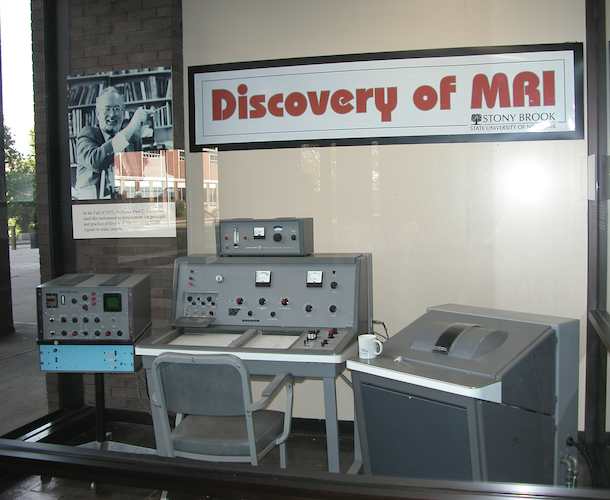
Stony Brook researchers developed the Nobel Prize-winning technology that led to the MRI, helped develop the technology for PET scans, created the technology for 3D virtual colonoscopies and discovered the cause of Lyme disease. They developed groundbreaking new medications such as ReoPro® (a drug used for cardiac angioplasty), Periostat® (a drug used for periodontal disease) and Xiaflex® (a drug used for Dupuytren’s disease).
The Renaissance School of Medicine conducted $118 million in funded research during 2022-2023, including $73 million in National Institutes of Health (NIH) sponsored research programs in neurological diseases, cancer, cardiovascular disorders, biomedical imaging, regenerative medicine and infectious diseases, among other topics.
A Medical and Research Translation (MART) building, which houses Stony Brook Cancer Center, opened in November 2018. There, researchers and clinicians collaborate on building the most comprehensive, integrated and unified team with one singular purpose: to investigate, discover and drive innovations in cancer treatment.

